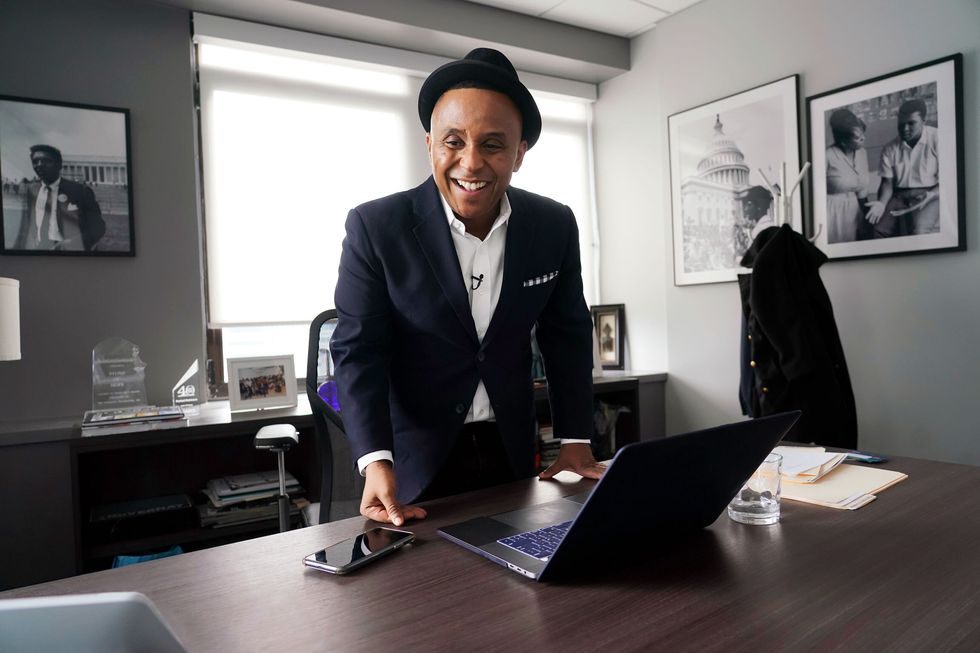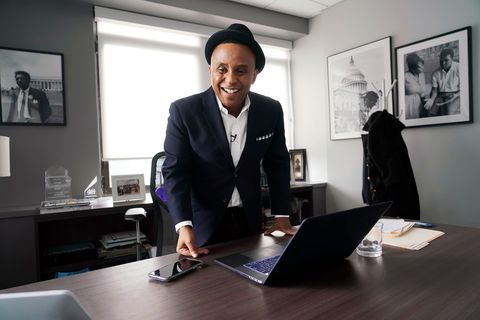From an early age, I saw with my own eyes how money bail could hurt Black communities. I remember when I was growing up, a call would come about my uncle John, who had been arrested for something or other, and my parents would have to decide how to put together the money for bail and figure out how to support and get food to my uncle’s partner and my cousins, who at that time were living in a house that did not have electricity.
But my parents also had their own bills, so there’d be a conversation that went like this: “If we put some money behind this, and other family members put some money behind this, we’ll have enough money.” That conversation also included how to make sure everyone got their money back when the situation was over, because it wasn’t like folks just had money to give. At the time, my family didn’t really have a systemic critique on bail; it was just the thing that they had to do.
Watching this cycle, I always believed that we could change the system. Maybe it was just my luck that I had parents who were always involved—but I can’t remember a time when I wasn’t in some space advocating for progress. I grew up in a town on eastern Long Island that was around 12 percent Black. In that community, you had to organize to get someone who represented you on the school board or on the town council. So I was knocking on doors for candidates well before I could vote.
And while I didn’t always have the language at that young age around building power for the people who are the most oppressed or fighting back against injustice, I had a real sense of what was right and what was wrong. And over time, I learned that if you don’t build power for the people who are the most targeted and oppressed, and if you don’t actually move the needle, you may win a victory you can’t hold on to.
I have applied this lesson over the course of my career, centering it as a theory of change in my role at Color of Change, where I’ve really started to dig into the injustice of money bail. Our deep work around the issue of money bail started way back when New Jersey was debating the legislation to raise minimums for bail in 2014. From our research and advocacy, we found that big insurance companies were—and still are to this day—reaping profits off the bail industry. As we started digging more, the story of Kalief Browder made things more transparent.
Kalief was a 16-year-old high school sophomore from the Bronx who was arrested in 2010 while walking home from a party. Police accused him of stealing a backpack. His family managed to raise the money for bail, but since Kalief was on probation, his probation officer put a hold on posting bail. Because of this unjust system, Kalief spent three years on Rikers Island even though he was never convicted of a crime. Charges were eventually dropped, but Kalief took his own life just two years after being released because of the trauma he experienced while imprisoned.
Even though we work to end the money bail system at Color of Change, I’m not against bailing out people. It has to happen in real time, as we’ve seen throughout these current protests and in Kalief’s story. But we also have to layer in the fact that we are operating inside of a system that is broken. It’s like education: You don’t want to tell people not to go mentor kids at inner-city schools, but you also have to be clear that’s not enough to solve poverty and underfunding. That’s because Black communities are not actually vulnerable; rather, Black communities have been under attack. Black communities have been targeted. We’ve been exploited.
If people are too poor to pay for their freedom, they end up behind bars for months or more. All the things that people end up losing—from connection to their children to their jobs, to their education and schooling, to their housing—can happen overnight because someone is too poor to get back to their responsibilities. And if they end up not having to serve time—since roughly 70 percent of people behind bars in jail haven’t been convicted of anything—they are in a situation that’s way more precarious than the one they were in when they entered, oftentimes with a lot fewer options. This has a real impact on our well-being and the generational well-being of our families; I saw this for myself.
So in order to make these changes, in order to stop the pain and hardship millions of families across America face day in and day out, we need to address the root of the problem, the systems and people in power that enable the problem. In January, Color of Change released a report with the Norman Lear Center at USC on how crime TV shows like Law & Order and Chicago P.D. normalize injustice. I’ve been invited to a lot of writers’ rooms, and one thing I always say is, Imagine if you were being surveilled. Imagine if there was a culture around police tracking your day-to-day moves. That is the experience that so many Black people have. And that is the experience that creates a hostile climate for our health, creates a hostile climate for our potential to live, when you have a society that, at every turn, is questioning your existence.
Color of Change has to push to change laws, protect those laws, and continue to hold our opponents accountable, and then at the same time we support bailout moments when we are able to both get people home and do more work to expose the system. There’s so much potential for real change. And I’m determined to drive as much change as possible.
—As told to KC Ifeanyi


